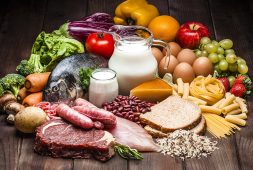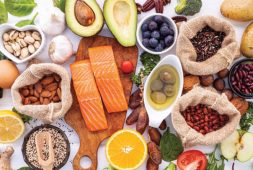
If you’re like most adult men and women, then you’ve probably tried one or two different diets, if not more, in your lifetime. However, knowing which diet is right for you is trickier than you might think because not all diets work for everyone. So the question remains, how do you know which diet to try?
While there are a number of different diets you can try, it’s important to also understand that while most diets will help you lose some of that extra weight you’ve been trying to shed on the short term, not all of them will help you keep the weight off in the long term. If you really want to lose the extra pounds and keep them off, you need to find a diet that is both sustainable and healthy, because not all diets are. Take the keto diet, for example, which forces you to remove complete food groups, or other such as Whole30, which have incredibly restrictive rules as well.
Unless you’ve been advised by your doctor for certain reasons, having to stick to completely unsustainable and confining types of diets just won’t work.
In this article, we look at healthy, effective and sustainable weight loss diets that some registered dietitians agree could work, and those that they believe aren’t here to stay in the new year.
Here are 4 of the Best Weight Loss Diets in 2022
Diet 1: Mediterranean Diet
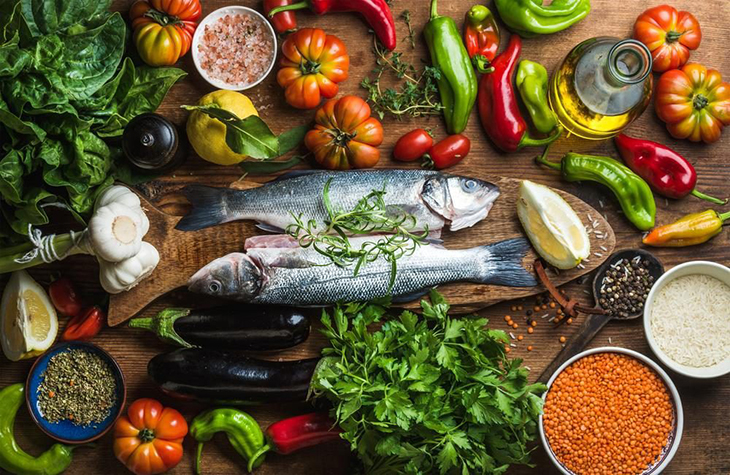
According to the U.S. News & World Report, alongside registered dietitians like Amy Gorin, RDN, owner of Amy Gorin Nutrition from Connecticut, their number 1 overall diet for the year 2022 is the Mediterranean Diet, which is a mostly plant-based eating approach.
Gorin explains that this diet is very rich in whole vegetables, fresh fruit, olive oil, fatty fish, whole grains, legumes, nuts and even red wine and diary, all because this is a balanced way to eat. It focuses on whole, plant-based foods rather than fast food or highly processed junk food, which can help people stick to it.
Another registered dietitian, Amy Goodson from Dallas-Fort Worth, explained, “By default, if you’re eating healthier foods that are higher in fiber and protein and are eating less saturated fat and sugar, you will likely eat fewer calories and lose weight.”
Moreover, there are other health benefits aside from weight loss that include heightened heart and brain health. In fact, one study that was published in the Metabolic Syndrome and Related Disorders journal suggests that the Mediterranean diet was associated with reduced weight gain when combined with exercise and followed for at least six months or more.
Diet 2: WW
What was once the popular Weight Watchers program has since changed its name to WW. The company chose to rebrand back in 2018 to make it more about wellness, rather than focusing only on weight.
Gorin, who used to write a nutrition blog called ‘The Eat List’ for WW, shares, “This program is one of the most effective weight loss programs out there, promoting long-lasting, sustainable changes with many studies to back this up.” But with the new version of WW, it now offers a customizable program that leans more towards a holistic approach.
But one thing to watch out for, explains Goodson, is that the program uses a ZeroPoint foods system, which determines what food is okay to eat in bigger amounts and those that need to be portioned. But as Goodson explains that most food still need to be properly measured. She shared, “Bananas have 100 calories, and eggs have 70. I love both foods, but it can add up. Someone shouldn’t have the belief that they haven’t eaten anything by consuming these foods. Portion control is still necessary.”
Diet 3: Vegetarian Diet
While most people choose particular diets based on their ability to help them lose weight, others decide because of environmental and ethical considerations.
When it comes to being a vegetarian, or practicing a vegetarian diet, many times weight loss is achieved because when one pays close attention to portion size, and the food itself – which is mostly veggies, fruit, whole grains, and other plant-based proteins – the result is also eating fewer calories than you would on another diet that still includes meat or fish. But at the same time, they are filling due to their possible higher fat content.
In addition, vegetarian diets can also boost your health. As explained by Jeanne Tiberio, a registered dietitian from Salem, Massachusetts, when the diet is properly planned out, “A vegetarian diet is a wonderful diet,” not just with weight loss but because one meta-analysis study showed that an association with lowered heart disease risks and reduced odds of cancer were found in those that chose this type of diet.
But if experts can also put caution to this type of diet, they suggest that if someone has a personal history of eating disorders, they may need to skip these restrictive diet plans all together and speak to a professional about what type of diet they should or can apply to their every lives, as well as ask themselves the reason behind wanting to diet in the first place to establish the proper bounds considering their past eating issues.
Diet 4: Flexitarian or Semi-Vegetarian Diet
Unlike vegetarians that don’t eat any real meat or meat source, the Flexitarian diet allows its users to add small amounts of animal products that include fish, meat, and poultry. The U.S. News & World Report ranks high on its list of weight loss diets, while also claiming that it’s one way to burn calories in a balanced way.
Goodson shares, “I like to think about following a plant-focused diet. Only 1 in 10 people are eating the recommended amount of fruit and vegetables in the U.S. By focusing on eating more plant-based foods along with high-fiber whole grains and lean proteins and dairy, you can reach the number of fruits and veggies you need.” Also, this type of diet has also shown positive health benefits such as lowered blood pressure and even a lessened risk of type 2 diabetes.
Here are 2 Types of Diets That Are Considered Middle Ground
Diet 1: Intermittent Fasting or IF

One of the most popular types of diets in recent years is called Intermittent Fasting or IF. This is when people have feeding hours – only eating in particular hours within the day – depending on their preference and what they want to accomplish weight loss wise. Goodson shares that there are a number of ways to do IF. Some do the 5:2, which means to eat very little during their fasting days, and eat regularly on their non-fasting days. For the others, it’s only eating during their “window or feeding period,” or the 16:8, which is 16 hours of fasting and 8 hours where they can eat within the day.
While there is evidence that proves IF has helped many people lose weight in the short term, it’s yet another type of diet that doesn’t work for everyone. It’s important to observe whether this type of diet can cater to your needs and your schedule to see if it will work for you. Gorin explains, “This eating style has a very restrictive nature and could lead to overeating or binge eating, so it’s not a good fit for a person with a history of disordered eating.”
Meanwhile, Goodson also worries about those that don’t eat and do training in the morning during their fasting hours. She shares, “If you go to the gym early in the morning and then don’t eat for several hours, this is counterproductive to muscle recovery.” If you plan to try IF out, be sure to consult your doctor first, especially if you have a medical condition such as diabetes.
Diet 2: MIND Diet
The MIND diet wasn’t actually created to lose weight. In fact, its main purpose is to impact brain health, which is why this diet sits in the middle. It was also fashioned a bit after the Mediterranean diet and the DASH diet, which stands for Dietary Approaches to Stop Hypertension. In fact, Goodson says “so it’s a dietitian’s dream.” While it’s based on the Mediterranean diet, it also emphasizes on particular foods like extra virgin olive oil, nuts, leafy greens, fish, berries, whole grains, and even wine – but this also depends on the patient’s current diet and lifestyle.
A study was done last April 2019 where participants were made to follow the MIND diet which resulted in 53% lower risk of developing cognitive impairment over a span of 12 years. And while it wasn’t for weight loss, many people that follow this diet end up losing weight since a number of foods are removed from one’s diet including fried foods, sweets and dairy.
Here are 6 of the Worst Diets for Sustained Weight Loss in 2022
Diet 1: Carnivore Diet
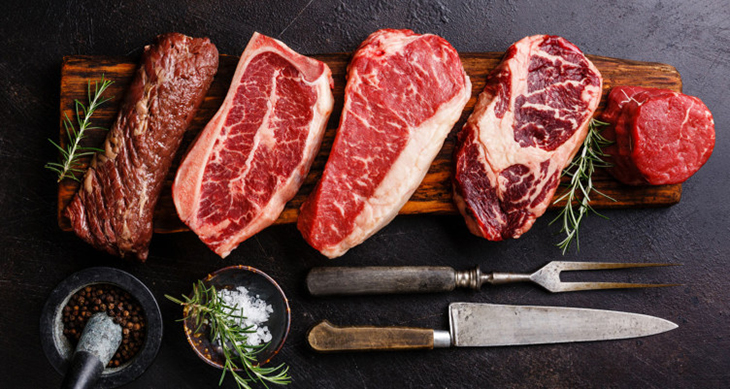
Just as the name suggests, the Carnivore Diet requires it’s users to eat almost all meat, with the exception of some eggs and fat, including cheese. There’s even one version that makes dieters eat only beef. But regardless of the success stories you see online, Gorin says, “This is not a healthy or sustainable diet, and there are healthier ways to lose weight. Not only is the carnivore diet extremely high in saturated fat, which can put you at risk for increased cholesterol levels, it also leaves out lot of foods that are really good for you,” like fruits and vegetables.
According to the experts, its truly best to avoid this diet. But if you must try it, make sure that you speak to a medical professional first.
Diet 2: Whole30
Although there’s nothing wrong with the kind of food that the Whole30 diet asks you to eat – which is a lot of fresh fruit and veggies over packaged and processed food – but while this diet also doesn’t allow alcohol or added sugars, which is fine, it also doesn’t allow other dietary staples such as dairy, legumes, and grains. Goodson explains, “This diet wasn’t designed to be sustainable – it’s meant to be a 30-day thing. But If you are someone who finds motivation in a diet “jump start,” then Whole30 might work for you, but make sure you have a plan for how you’re going to sustain healthful choices after a month.”
Registered dietitian in Washington, D.C., Anne Mauney, says that many times, diets with strict rules creates feelings or cycles of guilt around food. Even if you are able to follow the entire 30-day program, in the end you’re going to be hard on yourself for eating food that was once considered “bad.”
Then, when you go back to eating this supposedly “bad” foods, “you may end up eating more of them than you need or want, because there’s that sort of ‘screw it’ mentality, where you’ve already started eating something you ‘shouldn’t’ have, so you might as well keep going. This can turn into a sort of ongoing restrict-binge cycle over time, where you limit certain foods and then end up overdoing it on those foods later, before going right back to restricting and trying to be ‘good’.”
Diet 3: Keto Diet
The Keto diet is very popular for a quick fix because you lose weight fast. But researchers actually designed this diet to help control epilepsy in children.
But one main issue is that there isn’t enough research to prove that keto is actually safe and effective in the long-term. Keto is a high-fat, moderate-protein, very low-carb and zero sugar diet that is known to be hard to do. Plus when you come off the diet, more often than not, you gain back the weight you lost.
Moreover, although many claim there are a lot of health benefits for those who do keto if they have type 2 diabetes, Alzheimer’s diseases, and particular types of cancer, the research just isn’t there yet. Tiberio shares, “Keto restricts foods that help fight cancer and heart disease, like whole grains and legumes. Though you should be eating a lot of spinach and kale on keto, people generally eat bacon and eggs.”
Goodson also chimed in, saying that it could benefit some people. “Overall, I don’t love keto, especially for exercising people. But if you have diabetes and have uncontrolled blood sugar, this approach can help you lose weight, balance those numbers, and get you back on a healthy eating plan.”
Diet 4: Atkins
The Atkins diet was the original form of the low-carb diet, and was highly popular many years ago. But since Keto made an appearance for the low-carb craze, but you know it’s not good for you, then you might be considering going on Atkins once more. While keto limits your protein intake, Atkins allows more. Tiberio explains, “As with many diets, you lose weight quickly on Atkins. But it does not work long term.” It could also end with a negative effect on your overall health.
Diet 5: Paleo-Vegan (‘Pegan’)
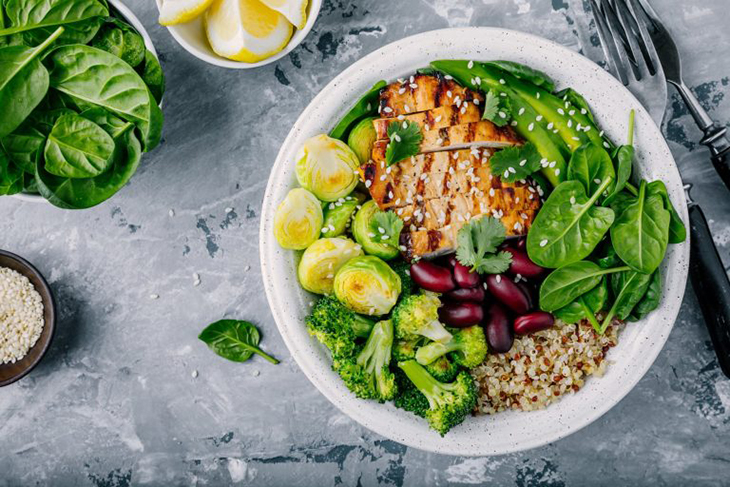
This is yet another diet that puts two separate ones together. It combines the popular paleo diet and adds some of the usual vegan ones, making it ‘Pegan.’ This allows the dieter to eat lots of fruits and veggies, as well as oils, seeds, and nut. But it eliminates dairy and gluten, while limiting grains and beans. Although it’s not traditionally vegan, it does allow for a limited amount of meat.
The Pegan diet has not been researched yet for weight loss or other health benefits, but Tiberio says that it’s likely to lessen one’s blood sugar levels and triglycerides. But again, while you may lose weight momentarily, it’s not considered a possibility to eat this unbalanced forever.
Diet 6: Cleanse Diets
Cleanse diets tend to consist of juice cleanses and other forms of toxic cleansing diets, but they are also considered ineffective for long-term weight loss. Goodson shares, “Many people try these in the beginning of the new year, but there is zero science behind their health benefits. You do not need something to cleanse your body – that’s what you have a liver and kidneys for.”
So the next time you’re looking for a quick weight loss fix, just remember that if you want it to be sustainable, then you need to speak to your doctor first about what type of diet and exercise is right for you.

